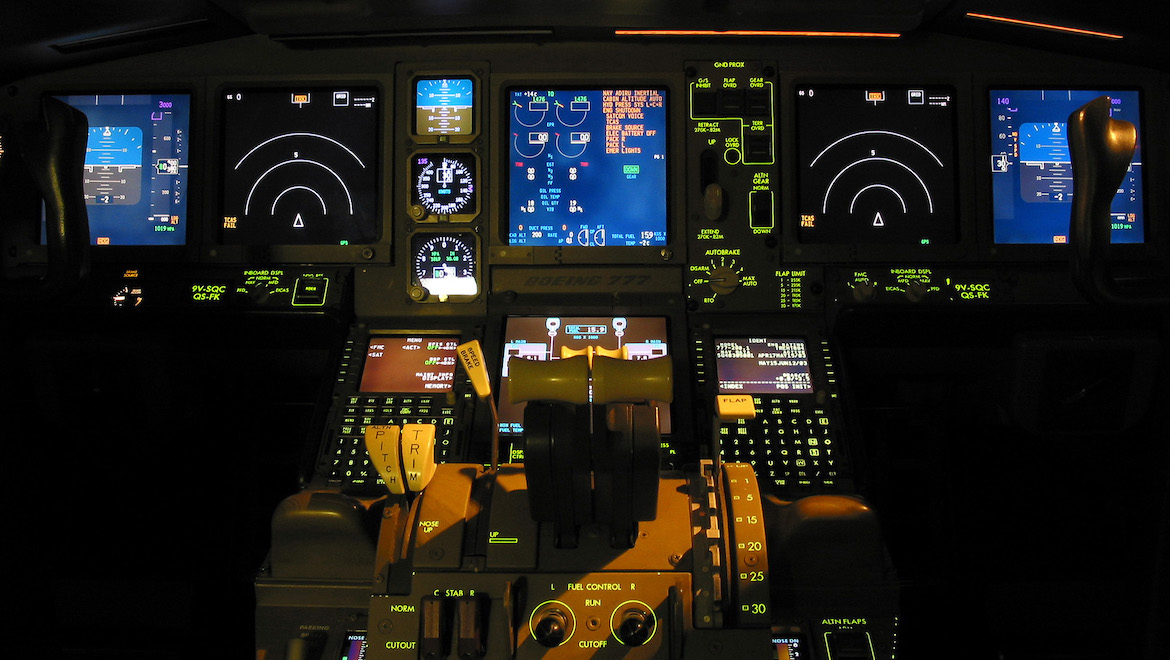
Aircraft manufacturers such as Boeing are increasingly looking at the “razor blade model” to grow their businesses: the idea being you buy the initial razor blade relatively inexpensively but then spend much more than the original price on blades over the life of the product.
Airliners aren’t exactly “relatively inexpensive”, but the airframers are increasingly expecting the price of the services market to equal or exceed that of producing the actual planes over their 20-year forecast periods.
Boeing Global Services is how the US manufacturer is planning to do that, with a substantial set of orders for software and consulting services — everything from electronic flight bags to rostering and maintenance systems, all of which help airlines use the data they generate to operate more efficiently and save money — announced on Wednesday (European time) at the Paris Air Show.
“Boeing has the broadest and deepest portfolio of digital solutions and expertise in the industry today,” Boeing Global Services chief executive Stan Deal said in a statement.
“We are constantly innovating and using analytics to look at data in new ways as we help our customers answer very specific questions about their operations.
“As our real-time solutions evolve, they become more powerful and valuable for our customers.”
On the maintenance side, Boeing said it had 336 customers using its Maintenance Performance Toolbox for real-time insight into maintenance data and information about engineering and certification. The latest additions to this business were Amber, Go2Sky, Landry’s and Metrojet.
Meanwhile, Boeing said Air Peace and EnterAir had joined 105 other customer of its Airplane Health Management (AHM) system.
“Boeing AnalytX powers AHM to provide customers the real-time maintenance and engineering support necessary to make operations decisions for their Boeing aircraft,” the company said.
On the leasing side, Boeing said Guangzhou-based Chinese startup lessor SkyCo Leasing had signed up for the company’s Corporate Management System (CMS), which integrated with financial software systems and provided support for key business processes associated with aircraft leasing, including tracking of aircraft, engines and spare parts assets, maintenance history tracking, and forecasting and marketing analysis reports.
Electronic flight bags, systems that increase pilot information and services that share data with operations on the ground were also proving very popular.
Boeing’s offering, the Jeppesen FliteDeck Pro, includes electronic flight bag services and other products that can be customised depending on an airline’s needs.
This kind of customised service for airlines was growing in popularity, with airlines — traditionally seen as “bad at data” – looking for assistance to help them process and understand the ever-increasing firehose of information that they generate.
Boeing is building on work from Jeppesen, which it acquired about 20 years ago.
Customers for the various products that were part of the Jeppesen FliteDeck Pro mentioned in the Boeing statement on Wednesday included Delta Air Lines, Japan Airlines, JetBlue and Uzbekistan Airways
Crew planning is another key area where new systems can help airlines to increase safety and efficiency at the same time, with Boeing offering its Jeppesen Crew Rostering, Jeppesen Crew Pairing, Jeppesen Fatigue Risk Management System and the Boeing Alertness Model.
Boeing said Cathay Pacific had signed a 10-year agreement for the crew rostering and fatigue risk management system products, while Interglobe Aviation, or Indigo, had opted to for crew pairing, crew rostering and the Boeing Alertness Model.
Finally, Boeing said United Airlines had selected a specific Jeppesen tool called Calibration in order to optimise its global crew planning operations.
Despite strong challenges from innovative startups and industry stalwarts alike, both major original equipment manufacturers seem set to continue their progress into the services space, particularly in the near and medium terms.
Established in 2017, Boeing Global Services brings together the company’s previously separate aerospace and defence services in supply chain management, engineering, modifications and maintenance, digital analytics and training. It is Boeing’s third business unit alongside Commercial Airplanes and Defence, Space and Security.




